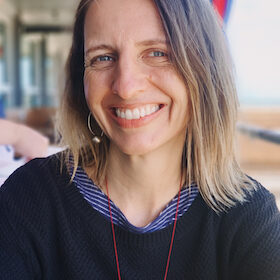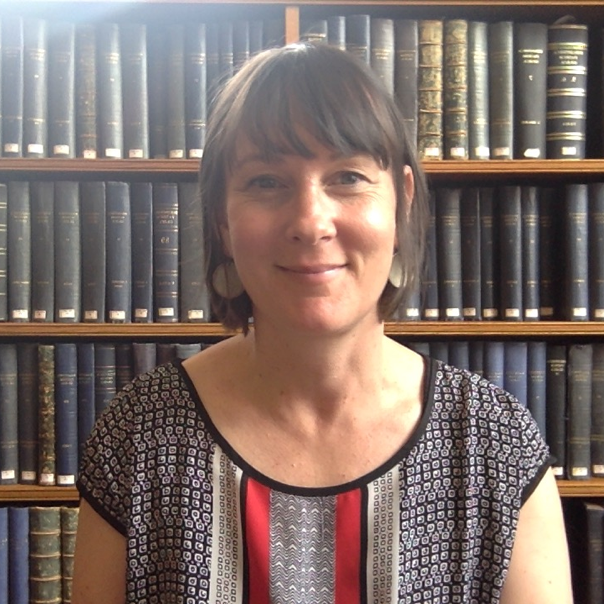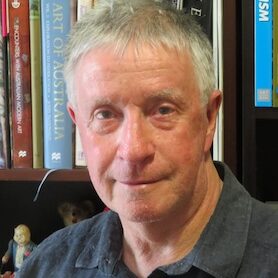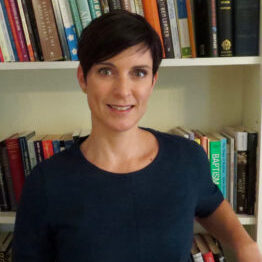Episode Transcript
[00:00:04] Speaker A: You're listening to by the well, a lectionary based podcast for preachers recorded on the land of the Wurundjeri people.
Hello, I'm Robyn Whittaker, and this is the episode for Pentecost. And we're going to be looking at the readings from acts, chapter two, one to 21, and romans 822 27. A bit more about the other readings first, but my co host today is a guest to our podcast and we're really excited to have her here. Welcome, Brooke Prentice.
[00:00:38] Speaker B: Thank you for having me. It's great to be here.
[00:00:41] Speaker A: Good to have you. Now, for those who don't know Brooke, Brooke Prentice is an aboriginal christian leader here in the lands called Australia. Now, she preaches regularly, she teaches around the church, she's published, she's a writer, a poet.
And what else do you introduce? Tell us something else about yourself, Brooke, that people should perhaps know so they understand where you're coming from. Yeah.
[00:01:09] Speaker B: So my people are the waka waka peoples, which is one of the over 300 nations of aboriginal peoples in these lands now called Australia.
And one of the other things I often say is I'm a chartered accountant, so I often like to look at the Bible from an economic lens as well. One of only 30 indigenous chartered accountants in Australia, but you covered it pretty well. A nationally recognised aboriginal christian leader.
[00:01:32] Speaker A: Great. And we're so pleased to have you here. And Brooke's been in Melbourne, or the indigenous name for that is Naam, this week. And one of the things we've been exploring together in various forums is what sort of reading the Bible with indigenous eyes looks like. And you're going to hear some of that in the way the Brook approaches scripture today. So I'm excited.
So, for those of you who might, this is a little side note for those of you, the lectionary gives us lots of choices this week, and one of them is Ezekiel 37 114, which is that valley of the dry bones. I love that passage. We're not going to cover it today, but we covered it when we recorded for Pentecost three years ago. And I'm going to put a link in the show notes to that episode. For anyone who wants to do a deep dive into Ezekiel, we're going to start with acts, chapter two, verses one to 21.
And our text starts with the day of Pentecost, which is a way of referring to the jewish festival of Shavuot. So it's the festival of weeks. It's one of the three jewish festivals where people were expected to make a pilgrimage to Jerusalem which is why we have a scene of these Jews from every nation speaking multiple languages here, gathered in and around the temple. This is what's being imagined here, acts probably being written down much, much later, but locating this story as the gift of the spirit immediately after Jesus has ascended into heaven. So Jesus is ascended in chapter one, and here we are in chapter two with this gift of the spirit. Brooke, what do you notice when you read a reading like this? What strikes you or stands out to you in the passage?
[00:03:14] Speaker B: Well, I'm really excited that you talked about this festival, because there's a particular festival on my country that happened for thousands of years, and as aboriginal peoples of these lands now called Australia, but indigenous peoples. So that sense of coming together, which is here in this act of here in this Bible passage. But I think the things that actually stick out to me are the violent wind. And so there's elements of creation, and so aboriginal people, we have our connection to country, and that's a capital c, uppercase country, and wind is part of all of country, as are peoples and all elements of creation.
So it's the wind, it's the tongues, and it's language. So they're the three things that kind of jump out at me.
[00:04:11] Speaker A: Jump out at you. I want to explore those more deeply because I was struck reading this again. I think this passage is so familiar to us, and some of us grew up in churches where you make tongues of fire and, you know, like, that gets acted out by the kids or whatever. But actually, the wind is first. The first sign of the spirit is the wind.
And that, of course, connects us back to that genesis, one of the spirit of God moving over the waters, the wind, the play on this pneuma word meaning breath or wind.
Yeah.
Tell us more about the different languages. You said the waka waka people have this festival where people gather for people who don't know the context in Australia, what is the significance of the different languages? Because.
Yeah, yeah.
[00:04:57] Speaker B: So our indigenous people here in these lands now called Australia, aboriginal peoples from over 300 nations, and there's also Torres Strait Islander peoples, and there's 100 islands in the Torres Strait, of which 20 are lived on. I'm an aboriginal person, and so Waka waka country is one of those 300 nations. And the Waka waka peoples would host this festival called the great Bunyanut Festival.
History books will tell you the last one was held in 1896, but my nan was born in 1933, and she was still going as a ten year old. And so, according to science, aboriginal peoples have been here in these lands now called Australia for over 65,000 years, according to common law, we say since time immemorial, and also as an aboriginal Christian leader, since creator placed us here. But when we look at all the indigenous people groups across the world, aboriginal people of these lands, now called Australia are considered the world's oldest living, continuing cultures. So the great Bunyanut festival went on for thousands of years, and they say 1896, but it was definitely still happening until 1943. But when you understand colonisation in these lands now called Australia, what happened is the other nations stopped coming and the waka waka peoples would keep going in secret. And so as I read this passage in acts and all these different languages, and so we have 300 nations, but actually over 600 dialects of language. And aboriginal people are incredible linguists.
And even at colonisation, how aboriginal people, someone like Bennelong, learned English so proficiently, so quickly? 1788. And there's many other examples.
And so. But we could communicate. And, you know, history says in Australia that we were nomadic hunter gatherers, which was always false. And we're Australia. The rest of Australia is starting to catch up now, but there's evidence. So waka waka country. Brisbane in Queensland. Meangen waka waka country is 3 hours drive north west of Brisbane.
[00:07:15] Speaker A: Yep.
[00:07:16] Speaker B: And then most people would be familiar with Sydney. Sydney's like an hour and a half plane flight today to Brisbane.
[00:07:24] Speaker A: To Brisbane.
[00:07:25] Speaker B: And the aboriginal people of the Sydney area, that's Gadigal country and Gadigal people. And we have evidence that as far south as Gadigal, those people would come up to Waka waka country for the great Bunyanut festival.
[00:07:40] Speaker A: That's amazing.
[00:07:41] Speaker B: It is. And if you just even look at the coastline, you've got at least 20 different nations. And it also came from the west and the north. So over 40 nations of people traveling on foot for probably months on end to come for this great Banyana festival, mass migration of aboriginal people. But it was an important ceremony for food and trade, but also marriage ceremonies were organized and many different things. And it was a great feast. The bunya nut is full of protein. It's delicious today, especially in a carrot cake with cream cheese frosting.
But, you know, we often can think about the movements of people, but also that they were communicating together in all their different languages and could understand each other. And so, you know, that takes me here. And I guess if people are preaching and they're like, oh, can I use that story? Use the story of the Waka waka people and the great Bunyanup festival and over 40 nations of the world's oldest living, continuing cultures coming together for thousands.
[00:08:47] Speaker A: Of years and finding ways to communicate. I love that because, I mean, again, there's such an emphasis in this passage on both a diversity and a unity. And I know those are overused words, but we've got, you know, the common thread is these are Jews. So there's a common religious or a common faith, but they're speaking. If you look at verses six onwards and verse eight, you know, for readers that have to read this out in church on Pentecost, it's often a mouthful. You know, all these places which are a long way away, Egypt, Libya, I mean, these are, if you're a walking culture, are a long way to travel to Jerusalem for this festival. And the miracle is that they speak, and this is really emphasized in the text.
I grew up and some old translations have, they spoke in tongues, but the Greek is really clear. This is other languages in verse four. So the Holy Spirit gifts them the ability to speak in other people's languages.
And as someone who's had to learn Afrikaans, Welsh, French, German, Greek and Hebrew and knows all of them incredibly badly, I wish I had this gift. I like this gift of the spirit, but that's emphasized several times. I mean, in verse six and verse eight, the language in the Greek, there is actually dialect. So the NRSV has. How is it we hear in our own native language? It's literally in our own dialecto, in our own dialect. And the miracle is this communication can happen. And I love that. That's an element of what you've just shared, Brooke. The communication can happen. There's commonality, but then there's also this difference. And the spirit is in the midst of that.
[00:10:27] Speaker B: Exactly.
[00:10:27] Speaker A: Yeah, yeah. Anything else you notice or, you know, in some ways, we know this story. I want to get to Peter's speech, which starts in verse 14 onwards, but anything else you notice or would pick up on, I think just to go.
[00:10:44] Speaker B: Back to the wind for the moment. And, you know, we are recording this podcast on Wurundjeri country, and one of my sermons talks about how we can, an aboriginal cultural practice is deep listening. Miriam Rose Uncle Mam Bowman has done that academic work on that in her language. It's da ditty, and some people might be familiar with that concept, but for each of us, we had this word for what deep listening was. And in one of the sermons that I preach, and it's often related to the Romans eight passage, which we'll talk about, but as it comes together for this week to think about that, one of my key moments with God was standing on a mountain on Wurundjeri country. So this is the country that we're recording this on, and this wind that came and, you know, feeling God's spirit and listening and doing that deep listening, which for us isn't just with our ears, it's ears, eyes, mind, heart and whole being. And I guess when I preach, that's what I bring to the Bible passages do that deep listening to what we're actually reading and hearing in the Bible to see how that forms you. And so I guess just an indigenous way of preparing for this week of preaching.
[00:12:12] Speaker A: Yeah, yeah. Thank you.
I think there's humour in this passage, too, like thinking of all those ways of, like, there's multiple ways we can listen to and enter this text. And I think as christians, we can often be very, very serious with the Bible and we should be. But I wonder if there's humor in Luke's telling. There's the verse twelve and 13 sneering. They're filled with new wine. I'm assuming the implication there is that new wine is slightly more intoxicating than old wine.
But Peter's defence, I've always found this to be one of the funniest lines in the Bible, particularly when you're australian, is he says, well, they're not drunk, it's only 09:00 in the morning. As if that's an impossibility.
But it also shows that there's a, you know, this. I mean, underneath the humor there, there's seriousness that when something new is happening, you get mocking, you get pushback or there's something different. Right. Like, you know, culturally, often our response to difference, yes. Is to be defensive or to mock it or to other it, right? And we've got some of that going on here in this text.
[00:13:24] Speaker B: And obviously, as an aboriginal person and the racism we experience in this country to be mocked at, to be laughed at, even as an aboriginal Christian and people who attack us and say, you can't be aboriginal and christian. And, you know, and as you read further in acts there, we're starting to talk about dreams and visions and, you know, very important in aboriginal cultures or anyone that's marginalized in thinking about a new way. And, you know, one of the things I say is that, you know, we've got some of the most ancient ways, and I call that the old ways in forming the new ways. So as you think about newness as.
[00:14:02] Speaker A: Well, and dreaming this language of dreaming, is in your cultural storytelling. Right. So, you know.
[00:14:08] Speaker B: Yes. So our whole underpinning of our whole system of law and living as aboriginal peoples is an english word that's been imposed on us, which is the dreaming.
[00:14:17] Speaker A: The dreaming.
[00:14:17] Speaker B: But it is actually a whole system of law and living.
But it's an important concept. Dreams aren't just things that are made.
[00:14:27] Speaker A: Up or happen in the night or something or aren't real. Yeah. And I think that maps nicely to what Peter does in verse 16. Onwards with, I mean, we're seeing Peter's interpretation of scripture here. So this is one of the things we see in the Bible is scripture interpreting scripture. So Peter's interpreting Joel, he's quoting from Joel three. And.
And there is a point to the last days, so we could talk about the time here. This is imagining they're in this new era because of what Jesus has done, that this has somehow shifted the cosmos in some way. But the expansiveness we get in the sort of narrative beforehand about all nations and all these different people is here in this quote from Joel as well, that when the spirit is poured out on all flesh, notice, I mean, you could go through and just notice how many times all is used in this passage. And then the explicit inclusion of young and old, men and women is really quite radical.
And it's a reminder that the gifting of God for prophetic leadership and for any kind of christian ministry is not limited by gender and age, despite sometimes our attempts to do that in the church.
So, yeah, there's. And then we get these signs importance. Right. So again, we've got. We're going to talk about this with Romans in a moment. But creation, the things that appear in creation in 19 and 20, the darkness, the smoky mist, these signs that are in nature are ways of God, communicating the pouring out of the spirit, I guess, just like the wind and the fire.
So there's.
[00:16:11] Speaker B: Yeah, and I guess, as you say, you know, this another word, multi generational, seeing everyone, you know, you talked about diversity and unity before, and I always say, you know, you can't have unity without diversity.
And so often here in these lands now called Australia, unity is seen as sameness.
[00:16:34] Speaker A: Yes.
[00:16:35] Speaker B: So I love that in terms of the language. But then as we get to those bits from Joel that are there in acts two, you know, multi generational approach is what we've always lived. The dreaming is past, present and future. And so I'm like, oh, it's not that radical. It's just talking about all the generations and in aboriginal cultures, you know, every single person and element of creation, which is therefore all of country, has its role and its purpose, and all are needed and are in harmony with each other. And so.
[00:17:11] Speaker A: Yeah, and I mean, I think that is something we can learn from your culture, Brooke, and from other cultures like yours, because in the white western world, we are often so highly individualized, we are disconnected from that, from that sense that we're part of something much more complex.
But, yeah, and totally agree with your point. Unity is not about sameness.
We've got to get rid of that idea. And this is an expansive vision of God's spirit, including everyone, but not making them the same. Yeah, yeah, that's right. Exactly.
So before we leave this passage and move to romans, is there anything in particular you'd preach, or should we? We can come back to that at the end, if you like. But if you were preaching this passage, what would you pick up?
[00:17:59] Speaker B: Obviously, being part of the world's oldest living, continuing cultures, aboriginal people are great storytellers. I always talk about how Jesus is a great storyteller. So I would go for story and bring in that story of the great banyana festival. And, you know, that is a story other people can use and bring honour and respect to indigenous cultures. So, you know, maybe finding. Maybe it's that indigenous story and, you know, they're all over the world, so I hope people can find one.
[00:18:32] Speaker A: Yeah. Fantastic.
So our second passage, I can't speak today, passage today is Romans eight, and the lectionary gives us 22 to 27, which kind of comes in halfway through a section. So you might want to read back a bit for some context.
I actually think this whole bit is governed by, you know, scholars will talk about really, from chapter eight on in Romans this, the way this chapter starts. There is therefore now no condemnation for those who are in Jesus Christ. And that gets sort of unpacked. What that means sort of governs that that's lurking over this whole passage. So we've got to have sort of that in mind.
It's important to note that this would have been written by Paul Long before acts was written. So acts is giving us a narrative about the giving of the spirit to the apostles, and that's part of his narrative about all the amazing things the apostles did and the spread of the gospel.
Paul here, I mean, this is probably written in the fifties. It's often seen as the sort of crowning piece of writing from Paul of theological depth. And I think he's actually talking about, like, just the reality. He's taking the gift of a spirit as a given, he doesn't give us a narrative about how it was given. It's given. And this is kind of what living in the spirit looks like.
But again, Brooke, what would you notice or what strikes you in this passage?
[00:20:14] Speaker B: Yeah, so I guess when I've preached around this section before, I'm usually using romans 818 to 2018.
And obviously there's strong elements of creation. And so for aboriginal peoples, we have our connection to country. And country, as I define it, is all lands, waters, sky, trees, plants, animals, birds, fish, rocks, mountains, and all peoples. And as aboriginal people, we're called to care for country.
And that role was given to us by creator God.
And so we're still trying to live that out today. But through the colonization we've seen here in these lands now called Australia and often say post colonial is only an academic aspiration, not a lived reality. We're not post yet, exactly, but so for me it's the creation and the groaning and the pain.
And I guess when we think about the shared history between aboriginal and non aboriginal peoples of the last 250 years of colonization, there's still much pain for aboriginal peoples and groaning and crying out for justice and even, I guess, hope in there. I'm interested in what we might talk about with hope, but I've often preached about that country and particularly lands and waters are crying out. And we feel that because we are connected to country and we can see the destruction of the environments, particularly here in these lands now called Australia. It's all across the world. But we are tuned in to that groaning and that pain and that cry.
And so.
But I feel that it's, as humans, we are called to do something about that. And so, you know, that's where I go to first.
[00:22:16] Speaker A: Yeah, yeah. And look, this passage, I mean, it's famous for the way Paul talks about creation as a.
I mean, in the way you're describing as sort of big sea country. I mean, different language, but as something with its own being, an agency. Right? Like, you know, this sort of life force. I looked up, I did some nerdy greekery with verse 22, which is this famous. We know the whole creation has been groaning in labour pains. Now, nt Wright's translation, in his kingdom translation has. We know that the entire creation is groaning together and going through labour pains together until the present time. And what I like about that is there's two greek verbs here. It's the groaning or the lamenting together, and it's the being in labour pains together. And in Greek they're words with the sun prefix. So sun means together, and you can whack that on the front of any word and it makes that verb something you do together. So in Greek, you can kind of almost just visually see that there's a whole lot of together language all through this passage. And I think it's been a little bit lost in the NRSV translation.
And this groaning together, this word, this sustenadzo can mean lamenting. And so I was thinking, what would it mean, thinking particularly of the climate crisis.
And, you know, we like to say we're post COVID. We're not post COVID. COVID is still out there, you know, what does it mean to lament together what's going on?
And we can also then name human conflicts and wars and the current starvation of people in Gaza and so much suffering. What does it mean to lament together as the people of God but on and with the whole of creation? Right. It's not us versus the world. We're part of the world.
[00:24:16] Speaker B: Exactly. And lament has been a key part of my aboriginal christian leadership journey and trying to lead this nation of Australia in coming together to lament. And it's been a really interesting journey around christians in Australia and their concept of lament and those that try to reject it and those that embrace it. And just, you know, it's an important. I believe it's an important part of our christian journey. And for me, you know, what we're lamenting here in Australia is the destruction of creation. And that continues to dismantle aboriginal peoples to connection to country.
And, you know, our elders of all those 300 nations cry out to all peoples of all cultures in these lands now called Australia, to care for country and country will care for you.
And if we can't bring ourselves to lament, then we. I think it's difficult then to move to action and climate crisis. There's urgent action that needs to be taken. When we look at the injustices facing aboriginal and Torres Strait Islander people, the human rights abuses of Aboriginal and Torres Strait Islander people in these lands now called Australia, we're sending ten year old.
[00:25:37] Speaker A: Kids to jail, to jail in this.
[00:25:39] Speaker B: Country when the international recommendation is 14 years.
We need to be lamenting that. We need to be taking action for that.
You know, I hope that people step into the understanding of this lament as well. But then.
[00:25:58] Speaker A: Yeah, and I mean, there's lots of ways one can pick this up, but if I hear you correctly, you know, there's a reality that we can't move to whatever's next, and we'll talk about the hope in a minute.
Like, you know, if we're in denial, right? So we've got to lament. We've got to groan. And I mean, even as Christians, and I love how this passage circles back in verse 26 to the spirit helps us in our weakness. And that word in Greek could equally be our sickness. So the spirit helps us, you know, so it's playing on these ideas of being in pain, being, you know, and it intercedes for us. So sometimes I think we need to pray and we need to just groan.
We need to sit and lament together. And we might not have the words, but, you know, God will give us the words or God will understand the not connected thoughts in our hearts and minds.
Yeah, but let's talk about this hope, verse 24.
[00:27:00] Speaker B: Yeah, I'm really glad we didn't just jump straight to the hope, because often what happens in my aboriginal christian leadership, or even when I'm preaching and non indigenous people might come up afterwards and you might talk about aboriginal injustice, and people always go. Non indigenous people often always go straight for, yeah, Brooke, but where's the hope? And it's like, actually, I've just laid out the hope. And that's why that lament element is really important, because if we don't actually face up to what is there, then how you move to that action, and it's actually the action that can bring hope.
And seeing action from other people helps to bring hope in that aboriginal fight for justice.
[00:27:46] Speaker A: Yeah. So if we think of hope, I mean, Paul here does a classic thing. We get it in hebrews two about hope is for something that's not seen. So, like, if it's. If it's just there, two steps in front of you, it's not really hope for Paul. He wants. He want. I think it's a way of saying there's a more expansive vision. Like, we're hoping for something we can't even fully imagine yet, but there's a danger if we say, well, we just wait with hope and God will fix it, that we do nothing. So tell me a little bit more unpack for us, like, where's the hope in the action bit? That connection you made with or action leads to hope.
[00:28:21] Speaker B: Yeah. So, you know, I think what I've seen as the unhelpful part of people preaching in this passage or taking this passage or the concept of hope in a christian context, I've had so many christians say to me, non indigenous christians, we are never going to have aboriginal justice.
Or whenever in Australia we use this word reconciliation with a capital r, meaning the building of relationship between aboriginal peoples, Torres Strait islander peoples and non indigenous peoples of all cultures. We'll never have aboriginal justice. We'll never have reconciliation until Jesus returns. For someone who's marginalised and oppressed, that takes away any sense of hope.
[00:29:06] Speaker A: Yeah, that's not hopeful, that's just. Oh, it's almost the opposite. It's almost despair to just sit with where you are.
[00:29:13] Speaker B: Exactly.
And so. But I think when people think about hope and what I'm trying to get at with taking that action is that for aboriginal justice, for reconciliation, there are things that we can do in our humanness. We can change the law to not send ten year old kids to jail.
It just takes the right people, the right leadership to follow the research that's out there and the impacts on people's lives. You know, we continue to create trauma in people's lives that creates pain and groaning and all of these things, you know, to make a loose connection there. And so, you know, be conscious of all different people's experiences as you preach and your own context around hope, I think, is kind of my experience, key warning. And, you know, there's things we can do in our humanness and then there's also, you know, we need to be praying to God and, you know, the spirit will move and God as well.
[00:30:19] Speaker A: So, yeah, whenever we have a passage on here that's about suffering and stuff, I say something very similar, which is a, we need to be mindful who might be sitting there experiencing what the Bible's describing, but b, if we just sort of say, well, we leave it up to God, we're not actually taking seriously. So the hope, we need to be more careful with how we think about these texts.
I'm going to ask you in a sec what you might preach, and in a sense you've already given us a really good sense of that and what you just said. For me and people who've heard me quite a bit on this podcast, know I'm not always a fan of Paul, it's not my go to, but I think if I was preaching this penny, this Pentecost, I would be tempted to let go of the act's story that everybody knows and actually spend some time in romans eight.
I think there's some profound theology here about how we are connected with all of creation, about how we are interconnected with one another.
And obviously there's connections to the acts two passage and all of that, but also how we're connected with God. I mean, we haven't spent a lot of time with it. But in the middle of this passage in verse 23, it talks about the we wait for adoption and the language there is actually sonship. It's sharing the relationship that Jesus has with the father. And I know that's gendered language and people might want to find alternatives, but the whole point is that we groan for this redemption, which is actually that we have.
We're taken into the very heart of God. So, you know, life in the spirit is living in the heart of God. It's living in connection with creation. It's living in connection with one another. And what that means for your local christian community, I think, is worth giving some time to. But Walt, any last words from you? Brooke?
[00:32:08] Speaker B: Yeah, I guess as you've just talked about heart, you know, that concept, the aboriginal cultural practice of deep listening is listening with ears, eyes, mind, heart and whole being. And that we know that we're in tune with each other when our heart beats are beating in rhythm together. And I often talk about that, then they're in tune with country and the heartbeat of country and then with the heartbeat of creator God.
And so I think the other thing to draw people's attention to is, you know, I've talked quite a bit about justice.
For justice to come, the arts and creative are very important. And so as I read this passage, I'm reminded of the incredible work of Helen Wright, singer songwriter of heart cries worship. And she has a beautiful song called all of creation groans.
And so people might want to check that out. Heart cries worship. Helen Wright, australian singer songwriter and I'd love to. It's a beautiful music video as well and really resonates with this passage.
[00:33:27] Speaker A: Well, thank you, Brooke Prentiss, for being with us today. We really appreciate you sharing your wisdom and your experience.
[00:33:33] Speaker B: Yeah, really appreciate the invitation. So thank you so much.
[00:33:40] Speaker A: By the well is brought to you by pilgrim theological college and the Uniting Church in Australia. It's produced by Adrian Jackson. Thanks for listening.





